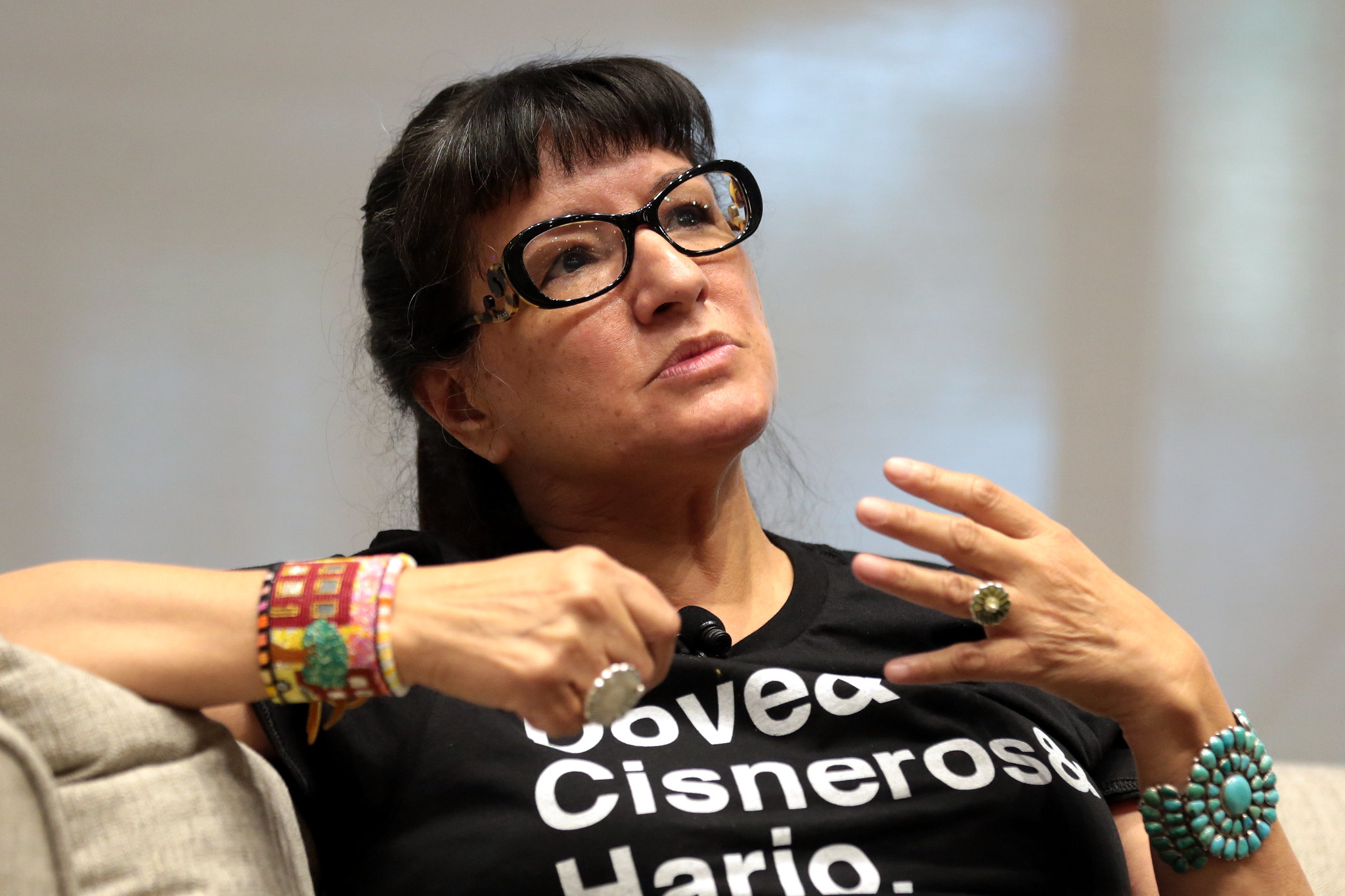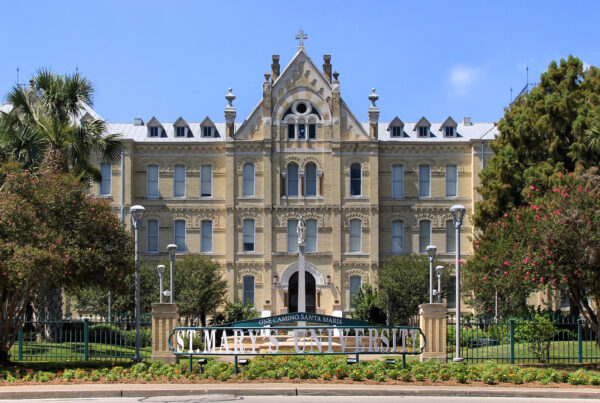Whether it’s Chicago, San Antonio or San Miguel de Allende, a lot of Sandra Cisneros’ writing evokes a specific place.
But those who have read her work also know that her stories and poems resonate everywhere. It makes sense then that one of her most celebrated works will be republished in a collection of classics called by some the “permanent library of record.”
The Everyman’s Library will release a new edition of “The House on Mango Street” on Feb. 20, in conjunction with Penguin Random House.
The story of a young Mexican-American girl in Chicago draws partially on the author’s own childhood. Since it was published in 1984, Cisneros has become one of North America’s most influential and beloved writers. She spoke to the Texas Standard about the book’s continuing impact on readers.
This transcript has been edited lightly for clarity:
Texas Standard: I was looking through some of the other authors who are included in the Everyman’s Library, and you’re going to be in this collection with folks like Toni Morrison, Gabriel García Márquez and George Orwell. Does that have any special significance for you?
Sandra Cisneros: Well, for one thing, it makes me ask myself, how did this happen? Because I’m the most astonished, I have to admit. You know, how did this happen that I get to be next to writers that I admired and that I read? And, you know, I just can’t believe it. I feel very grateful and sincerely lucky that I am getting this accolade while I’m still alive.
“The House on Mango Street” initially published in 1984. What do you remember about what your life was like while you were writing that book, and then how did things change when it came out?
Well, I remember that I was a teacher and I was working in a very poor community in Chicago. What had begun as a memoir changed into a novel as I collected the stories of my students and started knitting them into this neighborhood from my past.
So during that decade of my 20s, from 22 to 28, the book changed from memoir to a novel. And thankfully, a National Endowment for the Arts grant arrived that allowed me to finish it. It took a couple of years once I picked up my pen until I saw it published – in Texas, by the way – by a small press. And I was 30 when it was published.
But, my life didn’t change overnight. Actually, I went through a long overnight success. It would take another eight years before it was picked up by a larger press who could distribute it. I had a lot of support, thanks to the librarians – my heroes – and the high school English teachers who started using my books in the classroom.
But my own personal life went through, I guess, a hard period – almost two decades from the time I started the book. So it was a long overnight success.
» GET MORE NEWS FROM AROUND THE STATE: Sign up for Texas Standard’s weekly newsletters
I think when you talk to people who have had successes like this, many of them would describe it the same way.
Well, you know, people think it just came out and then – no, I had a lot of ups and downs, and especially downs. But that’s not why we create art. We create art to heal ourselves and to heal the people that we share the art with. And my book is doing that spirit work even now, 40 years later.
And I’m so pleased. I just feel like, really, so lucky. I keep saying that word, but I know so many other good writers, and I just don’t know what to account for everything that has aligned in my lifetime. I’m 69, and I’ve come a long way from the humble neighborhood that I came from.
My maternal grandparents could neither read nor write when they were pushed out of Mexico during the Mexican Revolution. And they meandered and emigrated, eventually winding up to Chicago. And now I live 100km from the little ranch where they worked that didn’t even belong to them. And I think, wow. Divine Providence had a great plan, and it began several generations before me.
You mentioned that one of the things that you’re proud of, I think you said, is that this book continues to do healing of people’s spirits. And in this book there are people who who need healing as well. You know, women and girls are assaulted. Almost everyone is struggling with poverty; young people trying to find their own identity. Have you seen any change in how audiences respond to those themes?
Well, on the one hand, I see that the problems are still there, so that’s disheartening in the situation for young people to get an education or to get a grant, although a lot of those things have disappeared. And now, all these years later, 40 years later, the situation in the United States is worse – not improved, gotten worse. And so that breaks my heart.
But on the other hand, the book is doing its spirit work, and by that I mean that it’s taking its message. It is uplifting people, it’s giving people hope regardless of what their gender or ethnicity is. I’ve had people who are most unlike me come up to me and tell me what the book gave them, and it’s changing lives. You know how they say art doesn’t make any change? Well, maybe not for you, but for me.
I have testimonies from many, many readers of the way that this book has changed their lives. How many writers get testimonies like that in their lifetime? And how is it that I was chosen to live long enough to meet my readers so they could tell me that? And why? I don’t know. Bendiciones. I’m just blessed. I’m getting all these bendiciones and blessings.
» MORE: Check out the latest book releases and author interviews from Texas Standard
What sort of things do you find yourself writing about at present?
Well, I just finished “The House on Mango Street: The Opera,” the libretto that I worked on with the composer Derek Bermel. We just handed that in last weekend for its debut at the Glimmerglass Festival in August. And it’s an opera adaptation of my book, something we’ve worked on since 2017. So, you can’t know how proud I am to have finished it.
And we still will be making edits, of course, in June. But I’m excited by the idea of the added dimension of music. This is the very first time that I’ve done something like this. And writing is so lonely, but when you’re working with someone else, it’s like a car ride with your best friend. So we really have had a blast putting the libretto together.
I have to tell you that I’m kind of intrusive in everything: on the set, the costumes, the lighting. I’ve written everything in the way I see it. Because, you know, you have no budget when you have your imagination. So I’ve written everything in the way I would like to see it. And now we’ll see the dream that we’ve been dreaming for several years. And that has made “House on Mango Street,” after 40 years, so relevant and fresh and new for me, because now I’m seeing it in a different genre, and I’m thrilled.













